

Course Outline
The Institute of Historical Research of the National Hellenic Research Foundation, one of the most important establishments for the research and study of Greek history (ancient, medieval and modern) at an international level, is pleased to announce the organisation of its fourth Summer School on Ancient Greek and Roman Numismatics, to take place at its premises in Athens, from June 27th to July 7th 2023.
The ten-day intensive Summer School aims at familiarising those who have little or no background with the discipline of numismatics by offering a series of introductory courses, visits to major numismatic collections in Athens, as well as guided visits to archaeological sites in Athens and Attica.
The courses provide a chronological survey of ancient Greek and Roman coinage (from the pre-monetary period down to Roman times), combined with lectures on numismatic methodology, as well as other specialised topics.
The lecturers are researchers at the hosting Institution (Institute of Historical Research of the National Hellenic Research Foundation), and experts in Greek and Roman numismatics from Universities in Greece and abroad.
Each year a distinguished visiting scholar is invited to develop a special topic. Our visiting scholar for 2023 is Thomas Faucher, Researcher at the Centre d’Études Alexandrines (UAR 3134 CNRS/Ifao), a specialist on Ptolemaic coinage. In his lectures he will discuss coinage minted in Egypt particularly during the Hellenistic period, Athenian imitations found in Egypt, as well as questions concerning the fabrication process and metallic analysis of ancient coins.
The Summer School on Numismatics is addressed to undergraduates, postgraduate students and PhD candidates in History, Archaeology and Art History, to historians and archaeologists, but also to individuals with a special interest in numismatics.
The number of participants is limited. The participants will be selected by a Scientific Committee following a thorough assessment of the application and the CV of the candidates.
The courses will be taught in English.
All participants will receive a certificate of participation.
Application Procedure
The Summer School on Numismatics is addressed to undergraduates, postgraduate students and PhD candidates in History, Archaeology and Art History, to historians and archaeologists, but also to individuals with a special interest in numismatics.
The number of participants is limited. The participants will be selected by a Scientific Committee following a thorough assessment of the application and the CV of the candidates.
The final deadline for applying is Friday March 31st 2023 (23.59 EET)
Candidates are invited to submit the online application form and attach a recent CV in PDF format.
Applicants will be informed of the selection results by e-mail no later than Friday April 7th 2023.
Along with the confirmation, they will also receive further information to complete the registration process.
Lecturers
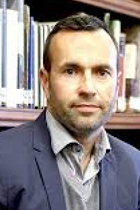
Thomas Faucher - visiting scholar 2023
Researcher at the Centre d'Études Alexandrines (UAR 3134 CNRS/Ifao)
Dr Thomas Faucher is a Researcher at the Centre d’Études Alexandrines. His research, focused on economic and monetary history, deals in particular with the production and circulation of money in ancient Egypt, as well as the methods of coin manufacture. Following a Master and a PhD in Archeology in the University of Paris-Sorbonne, he completed a postdoctoral fellowship within the framework of the Nomisma research project, financed by the National Research Agency. In 2011, he joined the French Institute of Oriental Archeology in Cairo as a scientific member, supervised the “Egyptian Gold” program and co-directed the excavations at the Samut site in the Eastern Desert of Egypt. In 2013 he was elected research fellow at the Orléans Archaeological Research Institute, and in 2019 he joined the Bordeaux component of the same laboratory (IRAMAT-CRP2A), continuing his work on Ancient Egyptian numismatics. Since 2018, he has been directing the French archaeological mission of the Eastern Desert (MAFDO).
Short CV | CNRS Profile | Academia Profile

Prof. Edward M. Harris
Emeritus Professor of Ancient History, University of Durham
Edward M. Harris received a BA in Classics from Stanford University, a BA in Classics (Literae humaniores) from Oxford University, and an MA and PhD from Harvard University. He taught at Brooklyn College CUNY from 1983 to 2005 and was a member of the Graduate School (CUNY) from 1986 to 2005. In 2005 he became Professor of Ancient History at Durham University and in 2009 became Research Professor until his retirement in 2013. He is now Emeritus Professor of Ancient History at Durham University and Honorary Professor at the University of Edinburgh.
Professor Harris has published Democracy and the Rule of Law in Classical Athens: Essays on Law, Society, and Politics in Classical Athens (Cambridge 2006) and The Rule of Law in Action in Democratic Athens (Oxford 2013). Professor Harris has also co-edited seven including The Law and the Courts in Ancient Greece, Markets, Households and City-States in the Ancient Greek World (with David Lewis and Mark Woolmer), Skilled Labour and Professionalism in Ancient Greece and Rome (with Edmund Stewart and David Lewis), and The Destruction of Cities in the Ancient Greek World (with Sylvian Fachard).
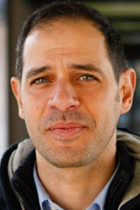
Prof. Panagiotis Iossif
Curator of Antiquities, Museum of Cycladic Art, Athens; Professor of Ancient and Medieval Numismatics, Radboud University Nijmegen
Panagiotis Iossif is a classical archaeologist, a specialist of the Hellenistic East, while his main object of study is ancient coinage and economy, religion and the methods of iconographic approach and depiction of images in antiquity. In 2017, he was elected professor of Ancient and Medieval Numismatics at the Radboud University in Nijmegen (Netherlands), while at the same time he was for several years the deputy director of the Belgian School at Athens, contributing significantly to its establishment as a research center. Since 2022, he is also curator of Classical Antiquities at the Museum of Cycladic Art, Athens.
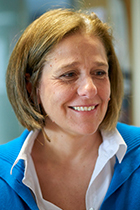
Dr. Sophia Kremydi
Research Director, Institute of Historical Research, National Hellenic Research Foundation
Dr. Sophia Kremydi is Research Director at the Institute of Historical Research (IHR) of the NHRF. Since 2019 she is head of the Section of Greek and Roman Antiquity of the Institute. Her research interests include: Greek coinage with emphasis on the Hellenistic and Roman periods; history, institutions and coinage of Ancient Macedonia; patterns of coin circulation and coin hoards; the function of coinage within the economic and legal framework of Greek states. She has taught numismatic courses at various institutions in Greece and abroad, has participated in congresses and directed research projects. She has published five books and over 40 articles on relevant subjects. Recent publications include “The Autonomous Coinages under the Late Antigonids” Meletemata 79, Athens 2018 (2020 Academy of Athens award) “Les Alexandres après Alexandre: histoire d’une monnaie commune”, Meletemata 81, Athens 2019, co-edited with M.-Chr. Marcellesi. In 2021 she received the Hundington Medal Award from the American Numismatic Society.
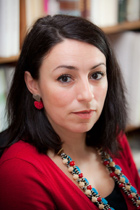
Dr. Evangeline Markou - programme coordinator 2023
Senior Researcher, Institute of Historical Research, National Hellenic Research Foundation
Dr Evangeline Markou is a Senior Researcher at the Institute of Historical Research (IHR) of the NHRF. She has worked at the Fitzwilliam Museum of Cambridge (2004-2005) and at the Numismatic Museum of Athens (2005-2007) on the digital documentation of the numismatic collections. She also taught Undergraduate and Postgraduate courses on Ancient Numismatics, Ancient History, Epigraphy and Archaeology at the University of Cyprus, the Open University of Cyprus, the Hellenic Open University and the University of the Aegean. In 2015 she conceived and created the website “Kyprios Character”. Her research, published in two books and 36 papers, focuses on the numismatic production of the kings of Cyprus and the questions related to the history of the island in the Archaic and Classical periods.
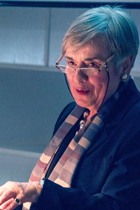
Prof. Aliki Moustaka
Prof. Emeritus of Classical Archaeology, Aristotle University of Thessaloniki
Aliki Moustaka is Professor Emerita of Classical archaeology at the Aristotle University of Thessaloniki. She participated in many excavations in Tiryns (Argolis), in the Heraion of Samos, in the ancient Molykreion (Aetolia) and mainly in Olympia, where she studied the clay sculptures of the sanctuary of Zeus and the excavation coins of the Panhellenic sanctuary. From 1987 to 2019 she has taught under and post-graduate courses on Classical archaeology and Numismatics at the Aristotle University of Thessaloniki. Her research, published on numerous monographs and papers, focuses on coins, sculpture of the archaic and classical period, iconography, bronze finds, cults and sanctuaries.
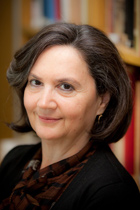
Dr. Charikleia Papageorgiadou
Research Director, Institute of Historical Research, National Hellenic Research Foundation
Dr Charikleia Papageorgiadou is Research Director at the Institute of Historical Research (IHR) of the NHRF. Her research work aims to investigate the use of coinage in the broader context of economy. She has published three books and is the co-editor of two; the more recent being the digital open-access publication Reflections on the circulation of Roman Republican coinage in Greece and the Balkans.
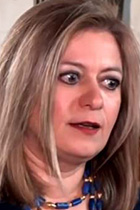
Prof. Selene Psoma
Professor of Ancient History, National and Κapodistrian University of Athens
Selene E. Psoma is Professor of Ancient History at the National and Kapodistrian University of Athens (2018). She studied History and Archaeology at the University of Athens, Ancient Greek History, Numismatics and Epigraphy at the E?cole Pratique des Hautes E?tudes (EPHE) and the Sorbonne-Paris IV/ France, and also attended courses (Oberseminar) of Ancient Greek History at the University of Cologne/Germany. She received her PHD from Paris IV – La Sorbonne in 1996 and her Habilitation from the same university in 2006. Before joining the University of Athens, she worked for the Numismatic Museum of Athens (1997-1999), and was a member of staff of the National Hellenic Research Foundation (2000-2009).
Her monograph on the history, onomastics and prosopography of Ancient Corcyra was published in autumn 2022. She is currently preparing another monograph on the Thracian Chersonese and the so-called "coinage of the Thracian Chersonese", and on money, finances and resources in Xenophon.
CV | Academia Profile | Publications
Venue
National Hellenic Research Foundation (N.H.R.F)
48 Vassileos Constantinou Avenue
The building has two entrances: the first is located on Vassileos Constantinou Av (N. 48) and the second on Vassileos Georgiou str.
You can get to NHRF by:
![]() Bus
Bus
203, 204 (Bus stop: Rizari)
224 (Bus stop: Evangelismos)
550 (Bus stop: Ethniko Idryma Ereynon)
622 (Bus stop: Evangelismos)
815 (Bus stop: Evangelismos)
![]() Metro
Metro
Evangelismos station (Exit to Rizari)
![]() Trolleybus
Trolleybus
from Patision Street > Trolleybus 3 (Bus stop: Evangelismos, on Vas. Sophias Ave.)
8, 13 (Bus stop: Evangelismos, on Vas. Sophias Ave.)
10 (Bus stop: Ethniko Idryma Ereynon)
See also :
OASA - Bus routes and timetables
Accomodation
The students of the Numismatic Summer School are individually responsible for their accommodation, but there are several options for your stay in Athens. In the city center there are several hotels, a variety of short-term accommodation facilities, accessible through specialised online platforms, and youth hostels.
You may also contact the Foreign Archaeological Institutes of your Nationality in Athens, in order to check for availability in their guest facilities during your stay.
The National Hellenic Research Foundation is situated in the heart of Athen's city centre, near the Athens Conservatoire (Ωδείο), the Panathenaic Stadium (Καλλιμάρμαρο) and the National Gallery (Εθνική Πινακοθήκη).
To find out more about the venue click here.
To find out more about visiting Athens, you can visit the city of Athens official visitor's guide here.
Fees
The Summer School will charge participant fees of 500 Euros.
The fee is due after the confirmation of acceptance and, at the latest, by Friday 21st of April 2023.
Fees include:
Students are individually responsible for their transportation, accommodation and other living expenses.
Cancellation/fee policy
Participants will be notified by Friday 5th of May 2023 if there is a sufficient number of students for the course to run.
In case of cancellation, participants will be offered a refund of the course fees.
Cancellations made after Friday May 31st 2023 will not be refunded.